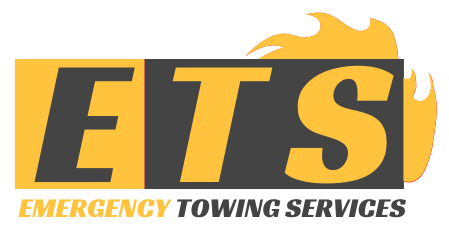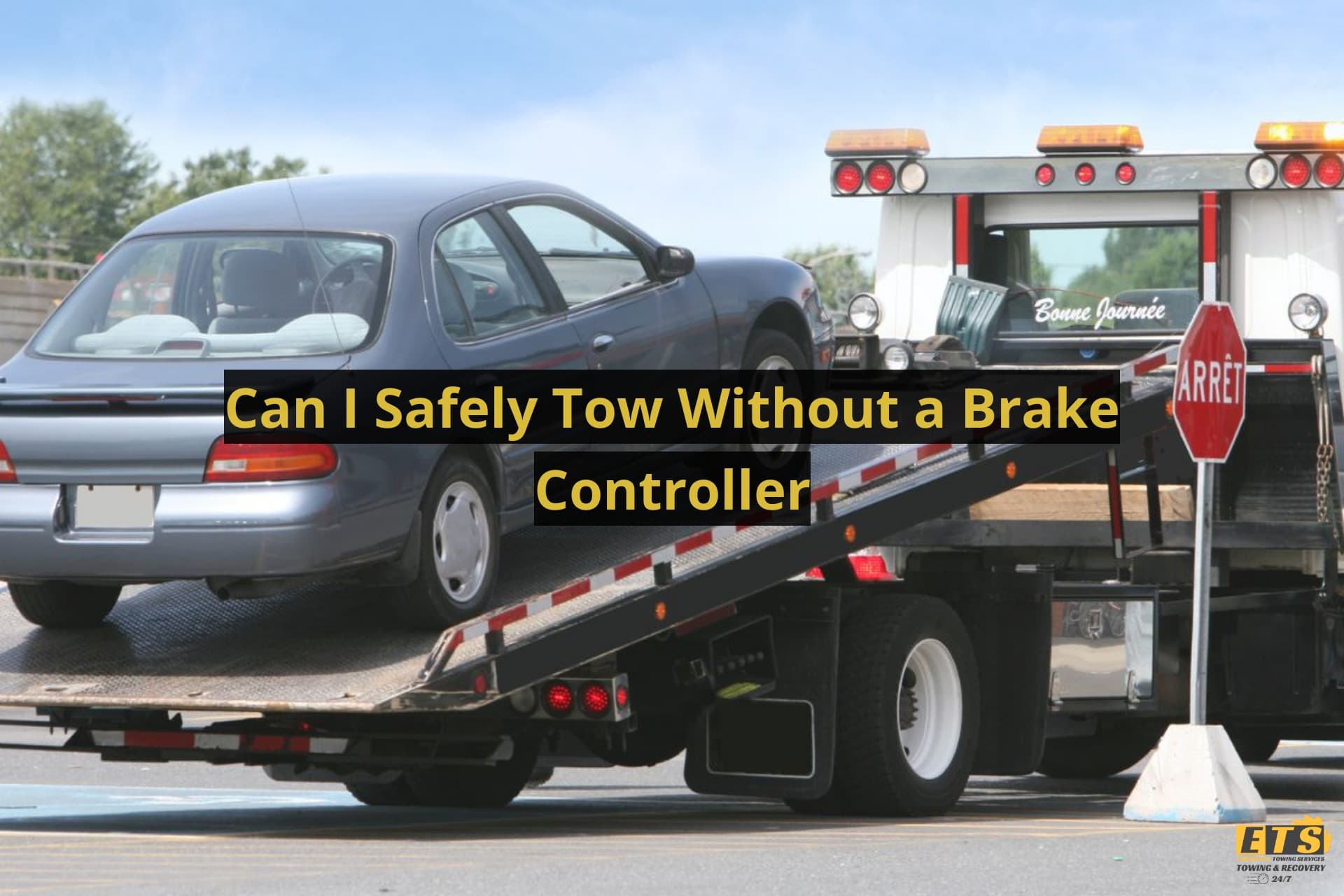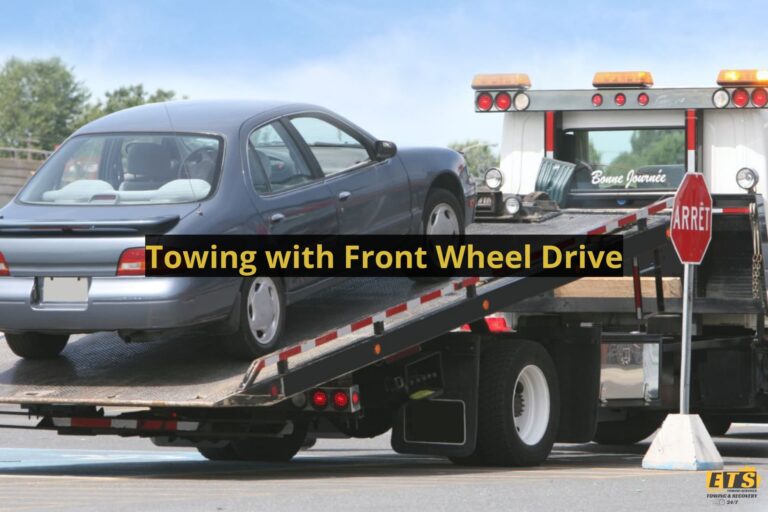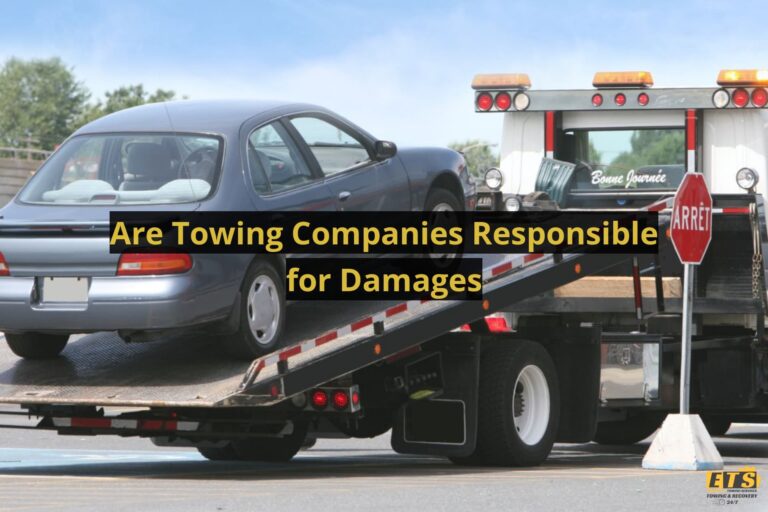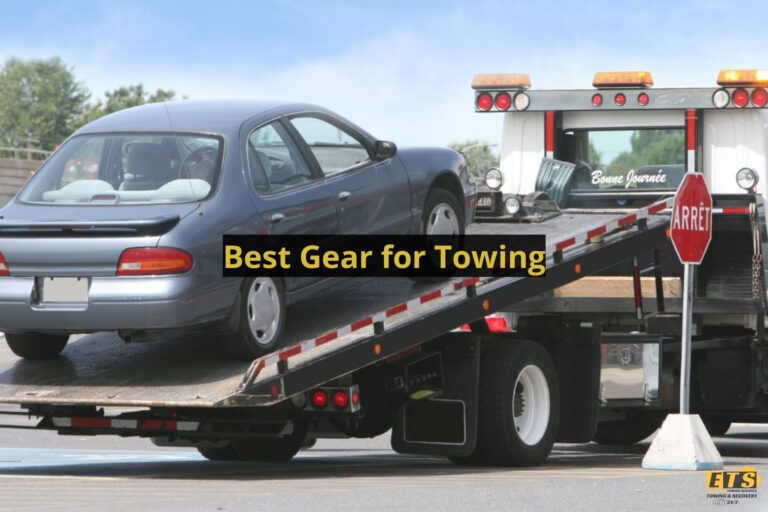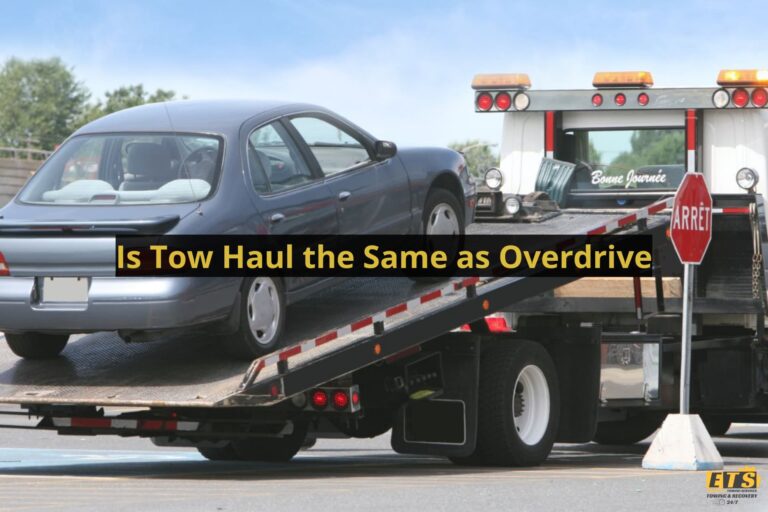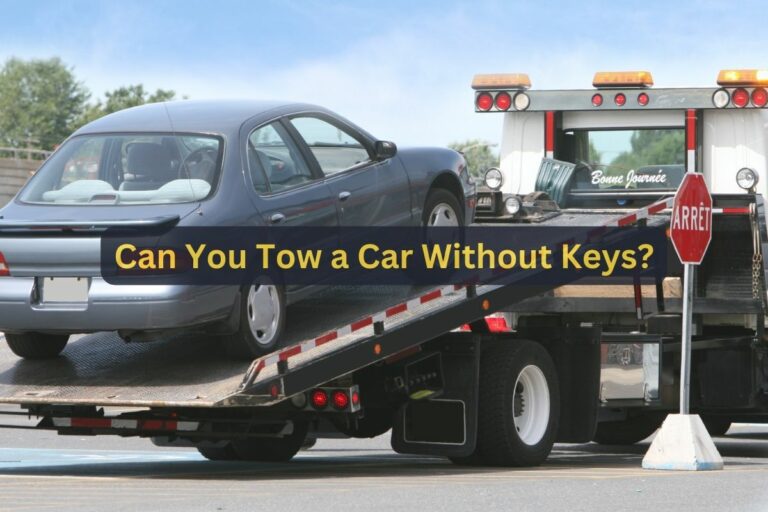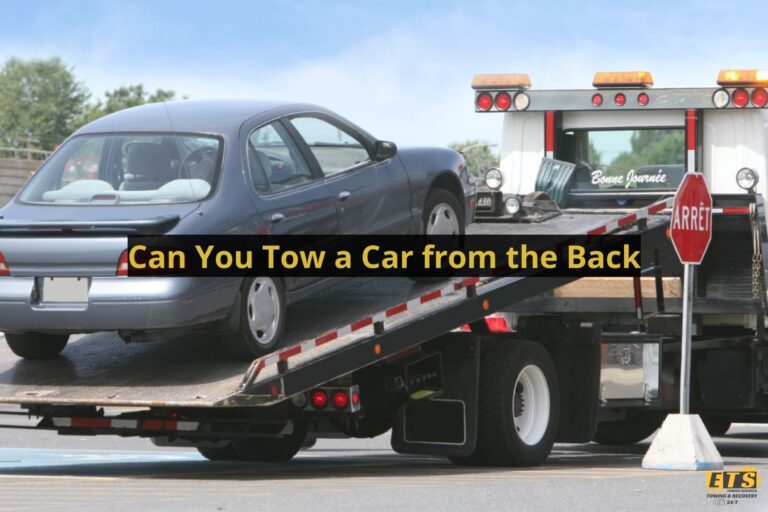Can I Safely Tow Without A Brake Controller
The information presented in this article is provided for general informational purposes only, and may not reflect the current laws or legal developments. This article does not constitute legal advice, and the reader should not act on the information contained in this article without first seeking professional counsel. We make no guarantees about the accuracy, completeness, or adequacy of the information contained in this article. The reader assumes all risks and liabilities associated with any actions taken as a result of reading this article. To obtain legal advice on your specific matter, please contact a qualified legal professional.
Towing a trailer can be an exciting adventure, whether it’s for recreational or work purposes. However, ensuring the safety of yourself and others on the road should always be a top priority when towing.
One question that often arises is whether it’s possible to tow without a brake controller. While some may argue that it’s safe to tow without a brake controller under certain circumstances, such as short distances or lightweight trailers, the reality is that using one is crucial for proper braking control and overall safety.
In this article, we’ll explore why a brake controller is necessary and what risks you take by not using one while towing. So buckle up and let’s dive in!
Understanding The Function Of Brake Controllers
Brake Controller Function: Explained
A brake controller is an essential component of towing vehicles. It regulates the braking system of a trailer, ensuring that it can stop in time and prevent accidents on the road. The device works by sending signals to the trailer brakes whenever you apply pressure to the tow vehicle’s brake pedal.
The Importance of Brake Controllers: Highlighted
Without a brake controller, your trailer may sway or push against your vehicle, making it difficult for you to control your rig when driving downhill or during sudden stops. This scenario increases your risk of getting into an accident and endangering yourself and other motorists on the road.
Thus, having a reliable brake controller installed in your vehicle becomes crucial if you plan to tow trailers frequently.
In addition, most states require drivers to have functioning brake controllers before they hit the road with their trailers. Failure to comply with this rule may result in hefty fines or worse consequences such as damage to property or harm to people involved in a crash caused by improper towing practices.
Therefore, prioritize installing and using a high-quality brake controller so that you can safely enjoy all your trips without worry!
The Risks Of Towing Without A Brake Controller
Now that we understand the function of brake controllers, it’s important to discuss the risks associated with towing without one. Simply put, it’s not safe to tow without a brake controller.
The risks involved include longer stopping distances, decreased control over your vehicle and trailer, and potential damage to both vehicles. Without a functioning brake controller, you’re relying solely on your vehicle’s brakes to stop the added weight of your trailer. This can result in increased wear and tear on your brakes and reduce their lifespan.
While some may consider alternative methods such as downshifting or using engine braking to slow down while towing, these are not effective substitutes for a properly installed brake controller.
It’s also worth noting that many states require brake controllers for trailers over a certain weight limit.
In sum, there simply aren’t any viable alternatives when it comes to towing safely without a brake controller. The risks far outweigh any perceived benefits of skipping this critical piece of equipment.
So before hitting the road with your trailer in tow, make sure you’ve got everything you need – including a fully operational brake controller.
Differences Between Electric And Hydraulic Brake Controllers
Electric brake controllers are electronic devices that are used to activate trailer brakes when a vehicle is towing. They work by sending a signal from the tow vehicle to the trailer brakes.
Hydraulic brake controllers, on the other hand, use hydraulic pressure to engage the brakes on the trailer. They are typically more expensive than electric controllers but offer greater control over the trailer brakes.
Electric Brake Controllers
When it comes to towing, safety should always be a top priority. This is where electric brake controllers come into play. These devices are designed to provide benefits that ensure safe and efficient towing experiences.
There are two main types of brake controllers: time-delayed and proportional. Time-delayed brake controllers work by applying a preset amount of braking force after a certain delay when the driver hits the brakes. This type is typically less expensive but may not be as effective in varying conditions such as steep hills or sudden stops.
On the other hand, proportional brake controllers apply the same level of braking force as the tow vehicle regardless of speed or terrain. They tend to be more expensive but offer better control and smoother braking.
Using an electric brake controller can make all the difference in your towing experience, providing greater safety for you and others on the road. While some states allow for towing without one under specific circumstances, this doesn’t mean it’s advisable or safe.
Always take precautions and invest in proper equipment to ensure a smooth ride every time you hit the road with your trailer in tow.
Hydraulic Brake Controllers
Now that we’ve discussed the benefits and differences between time-delayed and proportional electric brake controllers, let’s move on to another type of braking system: hydraulic brake controllers.
While electric brakes are more common in trailers, there are still some advantages to using hydraulic brakes.
One significant benefit of hydraulic brakes is their ability to apply pressure quickly and smoothly, providing better control when stopping.
Unlike electric brakes, which can have a slight delay due to the need for an electrical signal to be sent from the tow vehicle, hydraulic brakes work almost instantly as long as there is enough fluid pressure in the system.
However, one downside to hydraulic brakes is they require a separate braking mechanism installed in your tow vehicle.
This means additional installation costs and potential maintenance issues down the line.
Additionally, if you’re not experienced with maintaining or repairing hydraulic systems yourself, you may need to take it into a professional mechanic for service.
Choosing The Right Brake Controller For Your Needs
Brake controller options are crucial for safe towing. They’re designed to activate the brakes on your trailer when you apply the brakes in your vehicle, allowing you to slow down and stop safely.
There are various types of brake controllers available on the market, from time-delayed to proportional.
It’s important to note that not all brake controllers are compatible with every vehicle or trailer. It’s essential to check if your chosen brake controller is suitable for both your tow vehicle and trailer before making a purchase.
Failure to do so could result in unsafe towing conditions.
In summary, choosing the right brake controller is vital for safe towing. Ensure compatibility between your tow vehicle and trailer before selecting a brake controller option. This will help prevent dangerous situations while out on the road.
Proper Installation And Setup Of Brake Controllers
After choosing the right brake controller for your needs, it’s important to properly install and set it up. Follow these installation steps carefully to ensure that you have a safe towing experience.
First, locate a suitable mounting location for the brake controller within easy reach of the driver. Then, connect the wiring harness according to manufacturer instructions.
Next, test the brakes before hitting the road. Troubleshooting techniques are crucial during this process in case any problems arise. Check if all lights on both vehicles are working correctly, including turn signals and brake lights. If there is an issue with the braking system after testing, refer back to the manual or consult a professional.
Remember that safety should always be a top priority when towing. Not using a brake controller can lead to dangerous situations on the road. So take your time installing and setting up your brake controller and don’t hesitate to troubleshoot any issues that may arise along the way.
With proper preparation and attention to detail, you’ll be able to enjoy smooth and safe towing experiences every time!
Maintaining And Testing Your Brake Controller
When it comes to towing, having a brake controller is crucial for safety. It is not recommended to tow without one, as it could lead to dangerous situations on the road.
A brake controller helps regulate the amount of braking force applied to your trailer’s brakes and prevents them from locking up or skidding.
To ensure that your brake controller is functioning properly, it is important to test it regularly. The testing frequency will depend on how often you use your trailer and how much wear and tear your equipment undergoes.
Some common issues with brake controllers include faulty wiring connections, dead batteries, or damaged components.
If you notice any issues with your brake controller during testing or while towing, it is important to address them immediately. Ignoring these problems can put yourself and others at risk on the road.
Regular maintenance and testing of your brake controller will help keep you safe while towing.
Legal Requirements For Brake Controllers When Towing
As discussed in the previous section, maintaining and testing your brake controller is crucial for safe towing. However, some may wonder if it’s possible to tow without a brake controller altogether.
The short answer is no, you cannot safely tow without a brake controller. In fact, most states have laws that require trailers over a certain weight to be equipped with functioning brakes controlled by a brake controller.
While there are some exemptions for light-duty trailers or those used for agricultural purposes, these exceptions vary by state and should not be assumed.
Driving without a properly functioning brake controller can result in serious consequences such as accidents, damage to property, injury, and even death. It’s essential to always follow legal requirements for brake controllers when towing and take necessary precautions to ensure your safety and the safety of others on the road.
Tips For Safe And Responsible Towing With A Brake Controller
Towing without a brake controller can be dangerous and irresponsible. It is important to prioritize safety when towing any load, no matter how small or large. While it may seem like an added expense, investing in a brake controller can save lives and prevent accidents on the road.
When using a brake controller, it is crucial to adjust it properly for the weight of your load. This adjustment will ensure that the brakes engage smoothly and effectively, allowing you to stop quickly and safely. Different types of loads require different levels of adjustment, so be sure to consult your owner’s manual or seek professional guidance if needed.
In addition to proper brake control adjustment, there are several other towing techniques that can improve safety on the road. These include:
- Distributing weight evenly across your vehicle and trailer
- Checking tire pressure regularly
- Driving at appropriate speeds for your load and driving conditions
By following these tips and utilizing a brake controller, you can tow with confidence knowing that you are prioritizing both safety and responsibility on the road.
Conclusion
So, can you safely tow without a brake controller? The answer is no.
While some may argue that they have done it before and nothing bad happened, the truth is that towing without a brake controller puts yourself, your passengers, and other drivers on the road at risk.
It may seem like an inconvenience or an additional expense to purchase and install a brake controller, but in reality, it’s a small price to pay for the safety of everyone involved.
So don’t be fooled by the irony of thinking you can save money by skipping this crucial piece of equipment – invest in a quality brake controller and ensure safe travels on all your future towing adventures.
